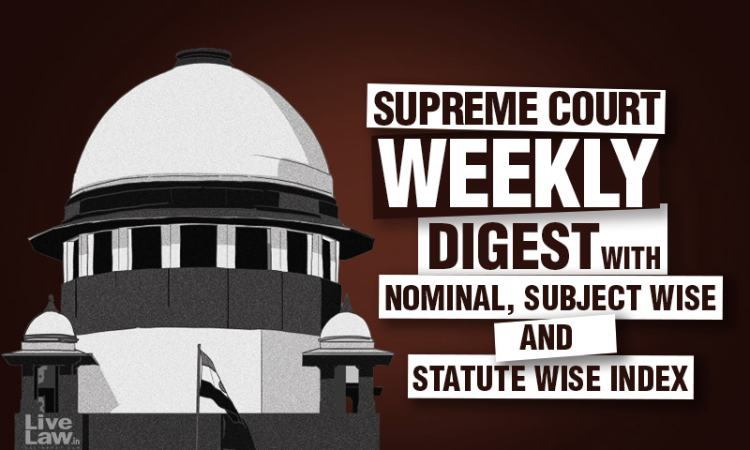Supreme Court Weekly Digest With Nominal And Subject Wise And Statute Wise Index- April 4 to 10
LIVELAW NEWS NETWORK
10 April 2022 4:47 PM IST

Next Story
10 April 2022 4:47 PM IST
Administrative Law - Appeal challenging adverse Remarks made in the Allahabad HC judgment regarding a Statutory authority - Allowed - Even if the High Court found that the impugned actions of the authorities concerned, particularly of the appellant, had not been strictly in conformity with law or were irregular or were illegal or even perverse, such findings, by themselves, were not...
